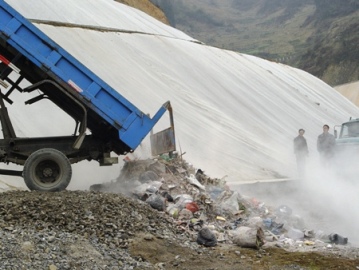From guerrillas to a regular army
Professor Du Huanzheng pointed out that while informal waste recycling has done well in terms of salvaging valuable material, there were hidden social and environmental costs.

The migrant junk collectors themselves suffer from many problems, from frequent involvement in petty crime to susceptibility to infectious diseases such as hepatitis, syphilis and AIDs; they also tend to infringe state family planning regulations with 72 percent having two or more children. And informal waste recycling often causes serious secondary pollution.
To solve these problems, the Beijing authorities tried to turn the guerrillas into something more like a regular army.
Some of the bigger operators among the waste-recycling guerillas established companies and signed cooperation agreements with residential districts. The remaining state-owned recycling units reformed themselves, and the governments of Beijing's Xuanwu, Haidian, Chaoyang and Fengtai districts set up new shareholding companies. For a period of time, various types of companies scrambled for business and turned a blind eye to the original intention of the reform.
Competition weighed heaviest on individual operators who were forced to sign contracts agreeing to pay around 10,000 yuan a year to larger companies, as well as kickbacks to the property management companies of residential buildings.
Professor Du proposed a new series of reforms and piloted them in Yongkang City in Zhejiang Province, a well-known scrap metal recycling center.
Before the reform, Yongkang had 4,000 individual waste collectors out of a population of 500,000. Under the scheme framework, Wuhua Recycling Co. Ltd employed all the individual operators and implemented the "Seven Unifications": unifying the layout, logo, uniform, price, weighing apparatus, vehicle and management. The company had four bases that directly did business with waste treading companies. Under the four bases there were 120 stations across which the 4,000 employees were distributed. The initial costs of reform were shared between Wuhua and the local government. In Professor Du's view, one of the most important results will be to raise the social status of waste collectors.
At the heart of the Yongkang reform is an emphasis on government sharing responsibility with the private sector and giving equal importance to generating revenue and social welfare. The reform was successfully piloted for over a year and Zhejiang is now rolling it out across the whole province.
In Beijing, some residential areas are now experimenting with schemes based on the Yongkang reforms.